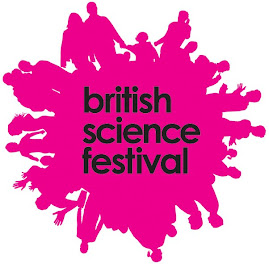
Continuing on with all the happenings at the Manchester Science Festival... On Sunday Maggie Aderin delivered her BA Award Lecture; Climate change: what space can teach us about climate change. Maggie told us about how inspired by the stars she was when she was growing up and that it was a time of great excitement with astronauts going up into space. From then on Maggie’s passion for space seems to continue and she now works as an “instrumentalist”, working with a team in her company to build instruments that take measurements and readings in space. It was incredible to hear about the hard work that goes into producing something that has to go into space. Firstly, it has to be built with the right materials, which are often extremely expensive. These materials and the prototypes have to be tested to extremes; temperature, pressure, wind and other tests simultaneously, to ensure it will be able to stand the extreme conditions it will be exposed to in space. Once you have a finished instrument, you have to actually get it into space which again has huge costs associated with it. So, it’s no easy task.
Maggie’s work is very important in climate change research. Her work helps to monitor changes in climate on earth, by collecting data about CO2 levels and the movement of the wind amongst other things. This contributes to ongoing data which will help to put the bigger picture of how and why the climate is changing and what we can do to combat climate change. These instruments can also be used to collect data from other planets which help us to further understand our own. My particular highlight was a demonstration of how a bottle filled with CO2 heats to a much higher temperature than normal air, providing such a simple example of what increased levels of CO2 are doing and could continue to do to our planet.
Hopefully we’ll see more of Maggie next year at the Festival during the International year of Astronomy!




No comments:
Post a Comment